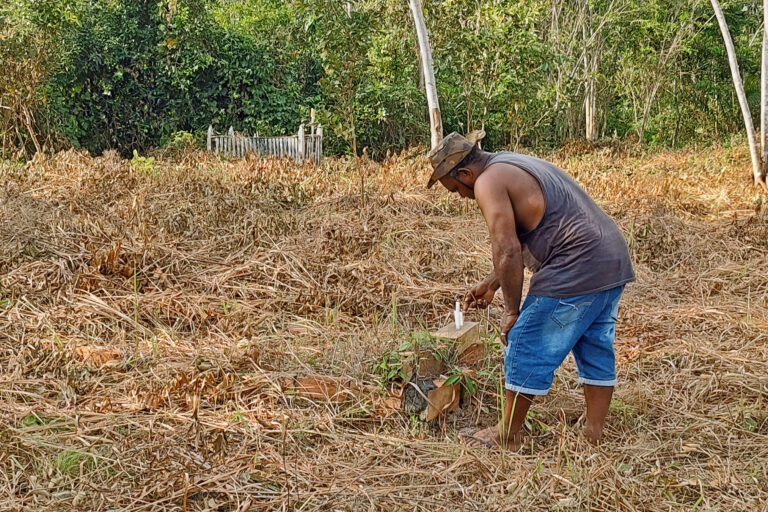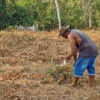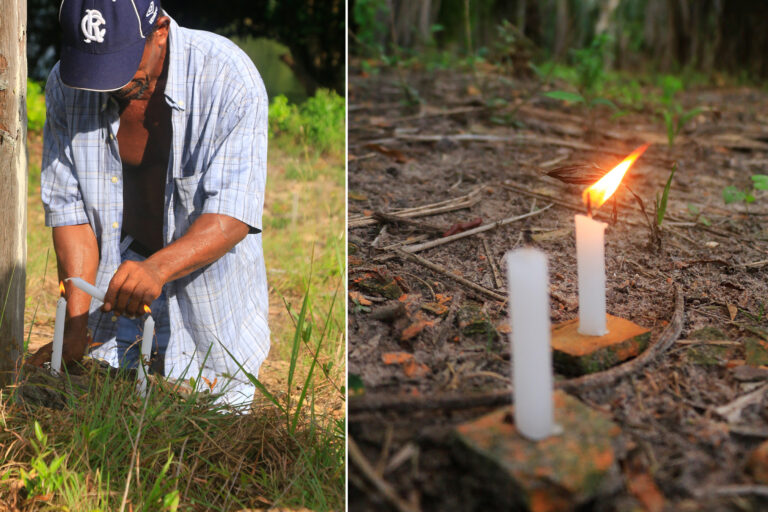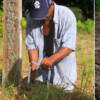Pensar Agro (“thinking agribusiness”), or IPA, lobbied hard for newly passed legislation like the so-called time frame bill that undermines Indigenous land rights and opens up the territories to mining.
A bid by global beef-processing giant JBS for a listing on the New York Stock Exchange, giving it access to an influx of global investments, may be under threat following…
In recent years, the state-run company made bold pledges about combating deforestation and received billions of dollars in reduced-interest loans to carry out these promises.
SÃO PAULO — On Tuesday, Brazil’s Lower House of Congress overwhelmingly voted and approved a bill to restrict the legal recognition of Indigenous territories throughout the country. Among many changes,…
A Mongabay investigation into land-grabbing in the Brazilian Amazon has led to the suspension of the sustainability certificate of the country's second top palm oil exporter, as shown in email correspondence…
JBS's sustainability-linked bonds may be audited after Mighty Earth filed a complaint against the company in the U.S. Securities and Exchange Commission, SEC, on Jan. 17. According to the NGO,…
ALTO ACARÁ, Brazil — “The right of those who used to live here to access the cemetery is in the [Brazilian] Constitution. … The cemetery is a sacred place,” sociologist…
ALTO ACARÁ, Brazil — With trembling hands, Raimundo Serrão lights candles for his grandmother at the Livramento Cemetery's cross on the Day of the Dead because he couldn't find her…
At the recently concluded COP27 climate summit in Egypt, 14 major agricultural commodity companies, including Cargill, ADM and JBS, released a plan to end deforestation associated with the production of…
A Mongabay investigation into palm oil contamination in the Brazilian Amazon has helped federal prosecutors to obtain a court decision this week to scrutinize the environmental impacts of pesticides used…
The European Parliament has approved a bill blocking the import of "dirty commodities" by members of the European Union, in an effort to combat global deforestation. Under the new bill,…
As if all the strategic and political aspects of the Putin-Bolsonaro alliance weren’t detrimental enough, underlying environmental considerations add yet another undesirable dimension. Meeting with Putin at the Kremlin literally…
Low German Old Colony Mennonites, who have been settling across Latin America for the past 100 years, have cleared 495 hectares (1,223 acres) of rainforest in the Peruvian Amazon so…
A project originally aimed to fuel agribusiness in one of the most heavily deforested parts of the Brazilian Amazon is now being touted by the government as a “green” and…
How do you get a small rancher to give up cutting trees for pasture and instead produce high-value and sustainable agricultural products without the requisite skills, money, or access to…
Home to a third of the planet’s tropical forests, Brazil accounts for only 0.17% of the world’s main forest-friendly exports, new research has found. Significantly smaller nations — both in…
During 18 months, Mongabay investigated allegations challenging the “sustainable” status of the Brazilian palm oil supply chain, unveiling the opposite, with impacts including deforestation and water contamination, discovering what appears to be an industry-wide pattern of brazen disregard for Amazon conservation and for the rights of Indigenous people and traditional communities in northern Pará state.
A recent Mongabay investigation into Brazil’s palm oil supply chain will be included in up to two legal actions targeting Biopalma, whose use of pesticides led to water contamination in an Indigenous reserve in the Amazon.
A Portuguese language version of this report is published on Mongabay Brasil TOMÉ-AÇU, Brazil — Guided by an Indigenous leader, we drove down dusty roads in the Turé-Mariquita Indigenous Reserve, a…
Sonia Castro says her family stayed in self-isolation for two months in the Jambuaçu Territory in Brazil’s Pará state. She recounts how they eventually fell ill, their condition worsening bit…
The advent of the Amazon soy moratorium in 2006 seemed to usher in a new era of hope for ending deforestation for food production in the world’s largest rainforest. From…
Forty percent of samples collected from 116 tapirs in a Cerrado study were poisoned with 13 toxic residues including 9 insecticides and herbicides, plus 4 heavy metals: report.
On the same day that President Jair Bolsonaro made his anti-indigenous speech at the U.N. General Assembly in New York, Brazil’s Indigenous Missionary Council (CIMI) released its annual report, “Violence…
Environmentalists are alarmed as Brazil approves 290 new pesticides and reduces restrictions for toxicological product evaluations, paving way for more approvals.
In 2010, some 400 companies grouped under the Consumer Goods Forum agreed to the goal of achieving zero net deforestation by 2020 for the four commodities responsible for the majority…
In recent weeks, some media outlets have run eye-popping headlines on rising deforestation in the Brazilian Amazon: "Deforestation of Brazilian Amazon surges to record high" read a June 4th headline…
Study finds pros and cons in a REDD+ carbon credit scheme in the Brazilian Amazon that rewards small-scale ecosystem service providers in local communities.
Small-scale oil palm projects show that sustainable supply chains, coupled with tough environmental regulation could benefit both farmers and forests.
Indigenous reserves and other conserved lands in nine Amazonian nations are under extreme pressure as roads, mining, dams, oil drilling, fires and deforestation encroach.
The president’s coercive methods are meeting with fierce opposition from NGOs, indigenous groups, scientists, Brazil’s Congress, high court and the international community.


































































